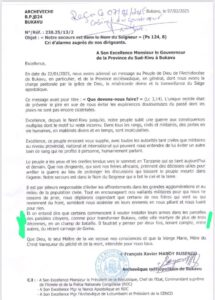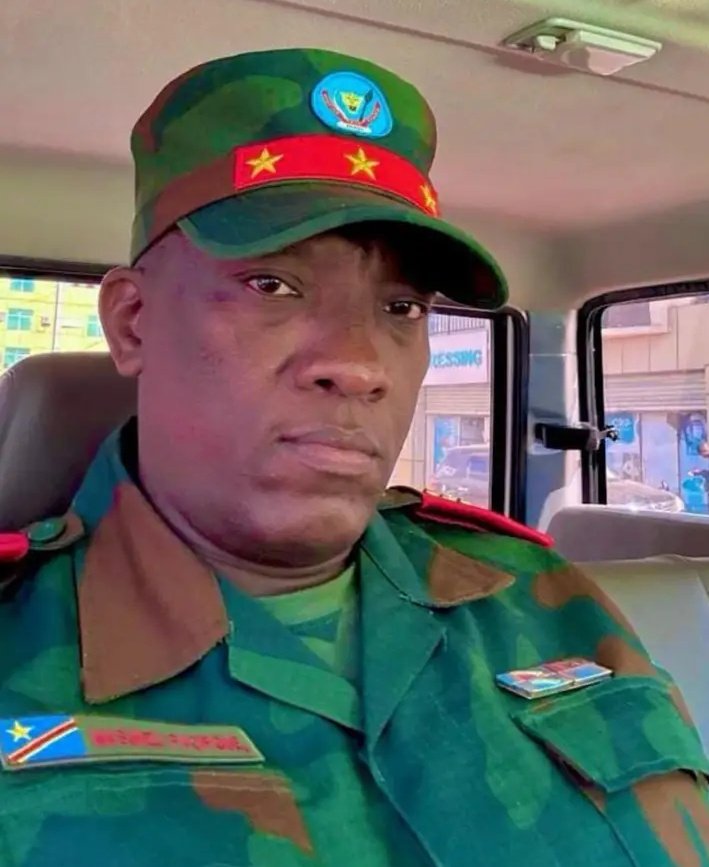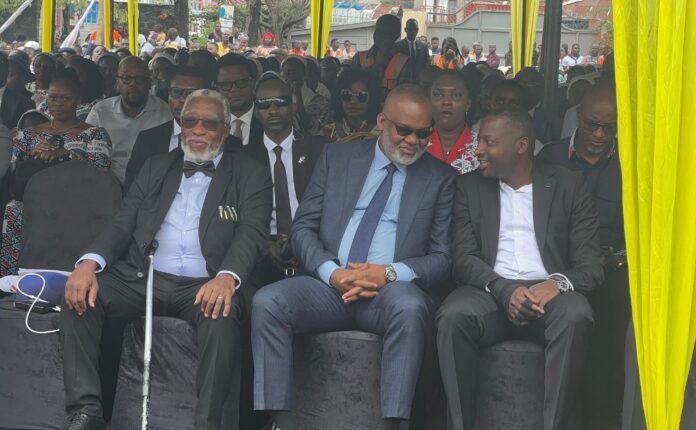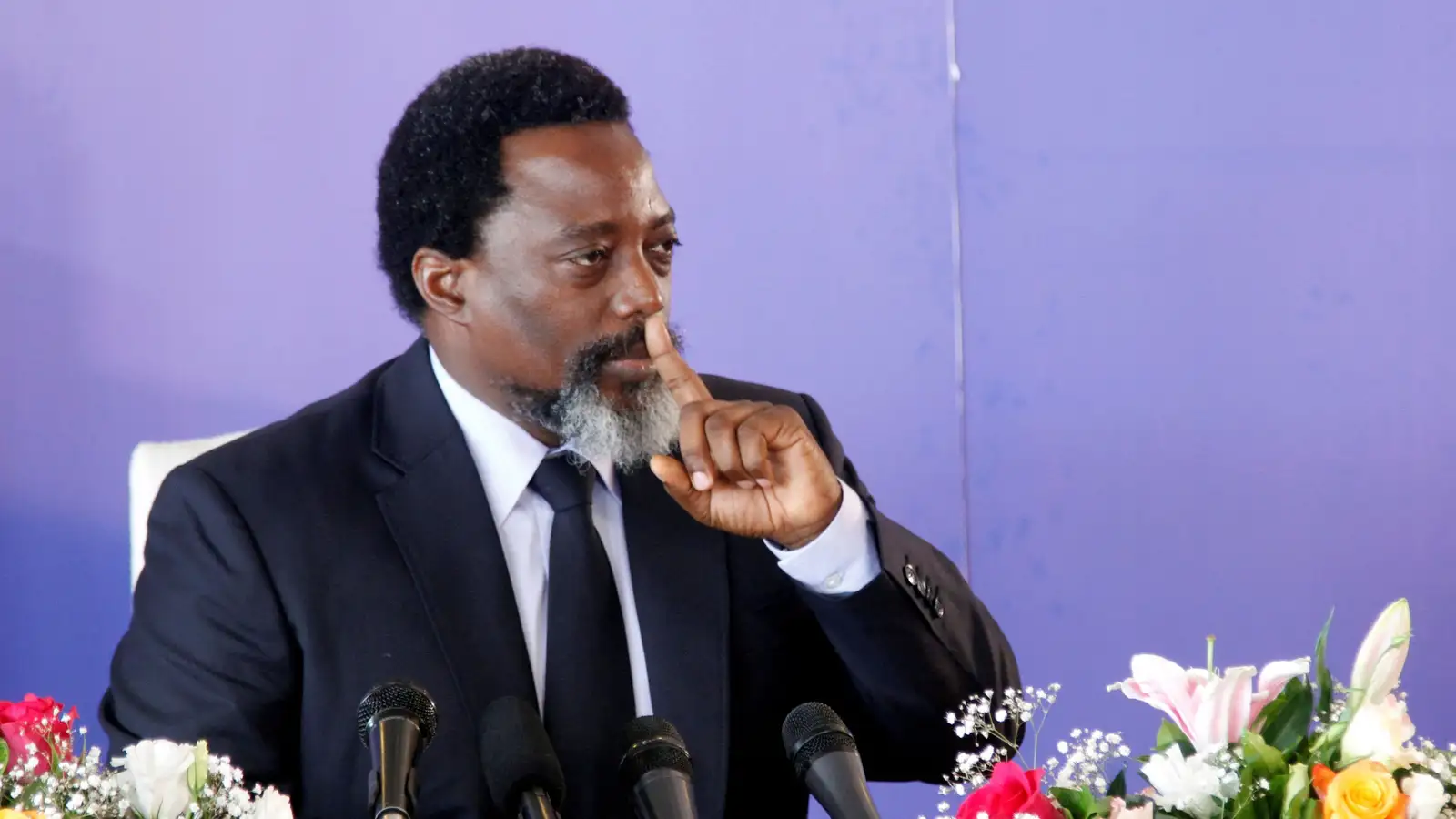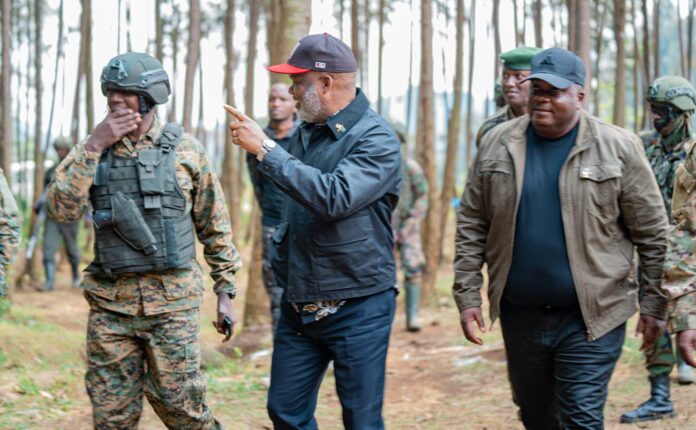Under the orders of General Pacifique Masunzu and the provincial authorities, the Armed Forces of the Democratic Republic of the Congo (FARDC) have reportedly begun deploying their weapons in residential areas of Bukavu. This move has raised serious concerns among local residents, religious leaders, and civil society organizations, who fear that it could turn the city into a battlefield.
Note: Company, Blog, Church websites are free.
The alarm was sounded by François Xavier Maroyi, the Metropolitan Archbishop of Bukavu, in a letter addressed to the authorities. The letter, which has been copied to both national leaders in Kinshasa and regional officials in Bukavu, warns of the dangers posed by this militarization of civilian spaces. According to Archbishop Maroyi, such actions put the lives of innocent citizens at great risk and violate fundamental principles of human rights and international humanitarian law.
Bukavu, a city in the eastern part of the Democratic Republic of the Congo (DRC), has long been a hotspot for political and military tensions. Given its strategic location near the border with Rwanda and Burundi, the region has historically witnessed armed conflicts, militia activities, and cross-border tensions. The recent decision by the FARDC to install weapons in residential areas has only heightened fears of an impending crisis.
Eyewitnesses report that military equipment and personnel have been positioned near homes, schools, and other civilian infrastructure. This move, if continued, could lead to disastrous consequences in the event of an armed confrontation. Local activists have condemned these developments, urging the government to reconsider its approach to security in Bukavu.
The letter from Archbishop Maroyi reflects the growing frustration among religious and community leaders over the government’s handling of security matters in the region. The church has historically played a crucial role in advocating for peace and stability in the DRC, often serving as a mediator in times of crisis. By openly criticizing the military’s actions, the archbishop underscores the gravity of the situation and calls for immediate intervention from the central government.
Civil society organizations have also expressed their opposition to the militarization of civilian zones. Many argue that deploying weapons in residential areas not only endangers civilians but also violates national and international norms. The Geneva Conventions prohibit the use of civilian infrastructure for military purposes, as it increases the likelihood of civilian casualties during conflicts.
As tensions continue to rise, various stakeholders have urged the Congolese government to take immediate action to prevent further escalation. Human rights organizations are calling for an independent investigation into the matter to ensure accountability and prevent future occurrences. They stress the need for a security strategy that prioritizes the safety of civilians while addressing the underlying causes of instability in the region.
The people of Bukavu, already weary from years of insecurity, now face the added burden of living in close proximity to military installations. Many fear that their homes could become targets in the event of an attack, further worsening the humanitarian situation in the city.
In light of these developments, national and international actors must work together to find a peaceful resolution to the security challenges facing Bukavu. The government must engage in dialogue with local communities, religious leaders, and civil society to ensure that security operations do not compromise the safety and well-being of the population.
Furthermore, regional and international bodies such as the African Union and the United Nations should closely monitor the situation and encourage measures that promote stability rather than conflict. The protection of civilians should remain a top priority, and alternative security strategies must be explored to prevent Bukavu from becoming a battlefield.
As the situation unfolds, the people of Bukavu continue to hope for peace, stability, and a government that prioritizes their safety over militarization. The world is watching, and decisive action is needed to prevent another humanitarian catastrophe in the eastern DRC.
